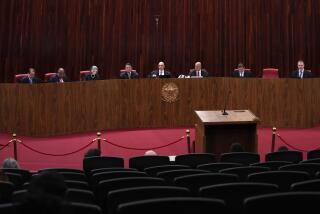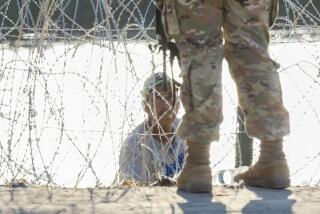Top Colombian Court Upholds Law Extraditing Drug Barons
- Share via
BOGOTA, Colombia — The Supreme Court bolstered President Virgilio Barco Vargas’ war against drug lords Tuesday by upholding the legality of his decree allowing extradition to the United States, the threat they fear most.
However, the court ruled against a decree under which security forces have been confiscating the property of accused cocaine kingpins.
The decision, announced in a communique, means that confiscation probably will have to be approved by the courts on a case-by-case basis and that the huge amount of property already seized may have to be returned to the owners.
The court, made up of 24 justices, met Tuesday to rule on constitutional aspects of decrees Barco has issued as part of an unprecedented crackdown on Colombia’s drug cartels.
The crackdown is in its seventh week.
Barco’s main weapon in the war is the power to extradite suspected drug figures to the United States if U.S. charges have been filed against them. Traffickers have demonstrated an ability to escape Colombian justice by killing judges they cannot bribe or intimidate.
U.S. officials say the inability to intimidate U.S. judges leads the Colombians to fear extradition more than any other measure against them. Traffickers of the notorious Medellin cocaine cartel said last month in a letter to Barco that they prefer a grave in Colombia to a U.S. jail.
On Sept. 6, Colombia extradited Eduardo Martinez, an economist thought to work for the Medellin cartel. Martinez was sent to Atlanta to face charges of laundering millions of cartel drug dollars.
U.S. and Colombian authorities have begun extradition procedures against another drug suspect, Ana Rodriguez de Tamayo, indicted in 1983 in Miami on conspiracy and drug trafficking charges.
More to Read
Sign up for Essential California
The most important California stories and recommendations in your inbox every morning.
You may occasionally receive promotional content from the Los Angeles Times.










